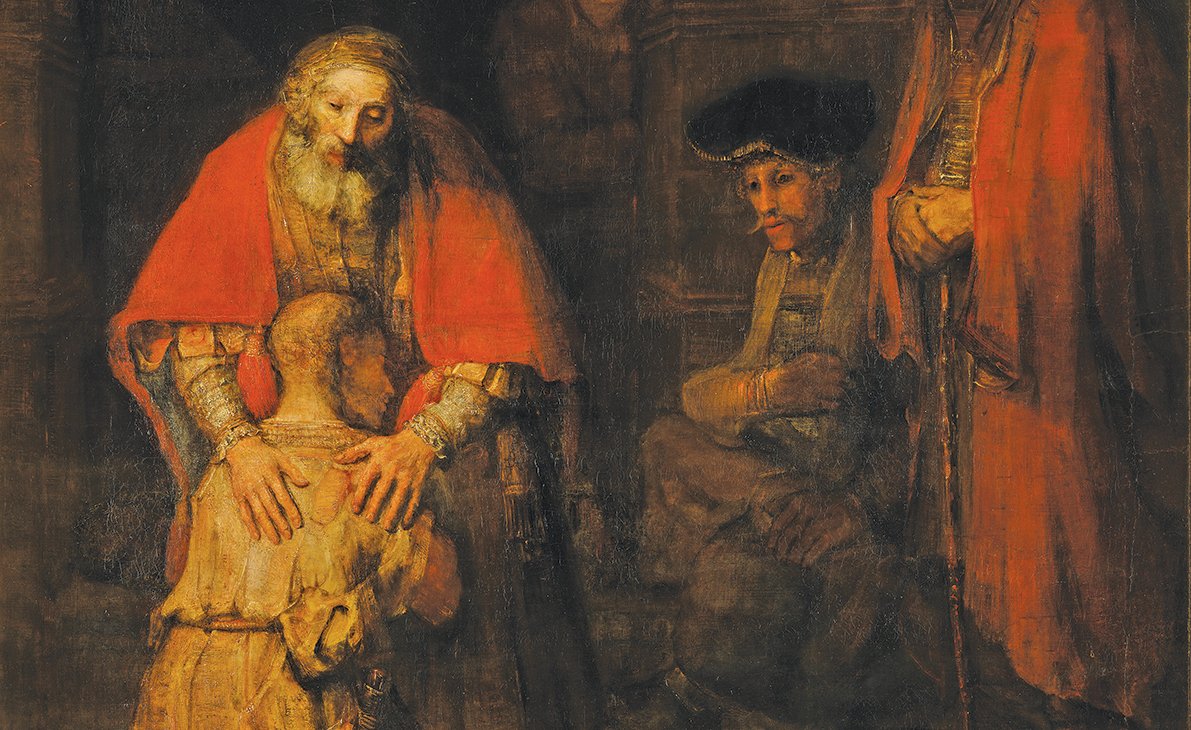Prodigal Meditation
Ignatian meditation is a way of drawing close to God through the power of the imagination, drawing from the style of prayer that St. Ignatius of Loyola used in his spiritual exercises. Ignatius was a Spanish priest in the 16th century who founded the Jesuit order. He believed that the imagination can grow our spiritual connection with the Trinity by inviting us into the events of Jesus’ life. This style of meditation emphasizes visualization, the senses, and even dialog with the characters in the story as you locate yourself in that scene.
First Reading: Settle into a quiet, comfortable space, and read these first few verses from Luke 15 on the story we call The Prodigal Son.
“There was a man who had two sons. The younger one said to his father, ‘Father, give me my share of the estate.’ So he divided his property between them. Not long after that, the younger son got together all he had, set off for a distant country and there squandered his wealth in wild living. After he had spent everything, there was a severe famine in that whole country, and he began to be in need. So he went and hired himself out to a citizen of that country, who sent him to his fields to feed pigs. He longed to fill his stomach with the pods that the pigs were eating, but no one gave him anything.
Meditation: Ponder these questions either by journaling or simply engaging them internally.
What do you see and smell?
What do you feel inside?
What does it feel like to be this hungry?
Second Reading:
“When he came to his senses, he said, ‘How many of my father’s hired servants have food to spare, and here I am starving to death! I will set out and go back to my father and say to him: Father, I have sinned against heaven and against you. I am no longer worthy to be called your son; make me like one of your hired servants.’ So he got up and went to his father.”
Meditation: Interact with the scene with these new questions.
What shifted inside you to move you out of the pig sty and onto the road home?
What’s happening in your body now?
What are you thinking?
What do you want?
Third Reading:
“But while he was still a long way off, his father saw him and was filled with compassion for him; he ran to his son, threw his arms around him and kissed him.
Meditation: From within Father’s embrace, consider these questions.
What are the physical sensations of the embrace?
What emotions are you feeling?
What do you want to say to Father?
Centering Prayer
Let the Embrace be your Sacred Symbol as you enter into some minutes of silence. When your mind begins to wander, remember the Embrace, feel the Embrace, and let your soul be held once again in presence.
Fourth Reading:
“But while he was still a long way off, his father saw him and was filled with compassion for him; he ran to his son, threw his arms around him and kissed him. The son said to him, ‘Father, I have sinned against heaven and against you. I am no longer worthy to be called your son.’ But the father said to his servants, ‘Quick! Bring the best robe and put it on him. Put a ring on his finger and sandals on his feet. Bring the fattened calf and kill it. Let’s have a feast and celebrate. For this son of mine was dead and is alive again; he was lost and is found.’ So they began to celebrate.”
Meditation: Now step into the role of being the Father instead of the son.
What do you feel as you hold your child close?
What do you want to say to your beloved child?
Who needs you to be the Father to them right now?
Close: Spend your last few minutes receiving the divine love…and accepting your calling to represent Father’s love to others in your life.

